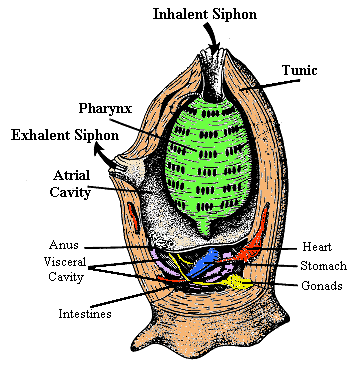At Wellness at Work we focus on injury prevention as well as treatment. Understanding that ‘Gut Feelings’ are an inbuilt safety system that can be extremely useful in keeping you out of hospital, avoiding and expense.
This article’s a bit of a read but if it stops you, or one of your loved ones, from getting injured then it’s gotta be worth the effort.
Gut Feelings / Staying Alive
Relying on your gut feelings to help you make a decision is not just some weird notion put forward by new age nutters. Your gut feelings are part of an intricate, neural network that's been developing for hundreds of millions of years.
When you understand how this system works, it becomes a logical and sensible way to save yourself from injury, bad financial decisions, even death.
Most of us, from time to time, have experienced an uneasy feeling in the gut. It usually happens right before you go putting all your weight that slippery step, or even after choosing the lowest quote on that roof renovation.
'Gut feelings' are feelings in the gut that can signal danger, anxiety, pleasure or excitement.
For those who chose to ignore your gut feelings because you ‘logically know better’, here are some insights into how your neurological wiring system works. You may want to consider this information the next time you face a big decision and have a 'gut feeling'.
Although there are many theories on how we got here, it’s pretty clear from fossils and DNA we evolved from creatures called Chordates starting some 300-400 million years ago. The most primitive of these were the tunicates or sea squirts’. They fed themselves by fanning food and water into their mouth. So, long before we had a brain (in our head) we had a brain in our gut, and that nervous system was attached to our mouth, stomach, intestine and bowel floating in the primeval sea.
Obviously there wasn't a brain floating around in the ocean that just grew itself a stomach to start feeding. "Hmmm thinking, thinking, thinking, Oh damn I just died of starvation" was not going to work.
It happened the other way around, we had a gut first then we grew a brain which developed the senses of touch, smell, sight and hearing. Later we added fins to move around and find food then arms to hang on to that food.
It was the bodies ‘second brain’ the (ENS) or Enteric Nervous System that kept these early sea creatures' alive by inventing better and better systems for finding food, and surviving.
Not all of these ideas worked and some, were just plain weird.

One of these, Opabinia, had five eyes and one arm (a bit like a teenage boy) too many eyes and not enough focus on the job.
Opabinia didn’t make it, maybe from too much looking, and not enough doing, sound familiar?
Today the gut's nervous system, the ENS, is recognised as our ‘second brain’ it has survived simply because it’s essential to our existence.
The nerves of the spine control all our major organs and the brain supervises the body and movement, the ENS is located throughout the linings of the throat, stomach, intestines and colon and it regulates ‘all’ the digestive system.
Plus, the ENS sends and receives messages, records experiences, and reacts to emotions, using incredibly powerful neurotransmitters. Only 2% of our Serotonin is controlled by the brain and over 90% by the ENS. Upsetting the gut can have a major negative impact on things as varied as Osteoporosis and Depression.
Nerve messages between the gut the brain and the spine travel back like a super highway. It’s from the ENS that the brain learns that the body’s eaten something rotten and laden with bacteria.
To give you an idea of the size and nerve power involved, the ENS has more neurons (nerves) than the spine and the spine monitors and controls all the major organs like the heart, lungs, kidneys, liver and gland function.
The neurons of the ENS cover the inside walls of the digestive tract, this population of cells is so large, that if laid out flat, they would cover an entire tennis court.
Why do we need so much nerve power?
Well, every mealtime for hundreds of millions of years our ENS has had to face off against new and unusual challenges of new foods that are alive with foreign and dangerous bacteria.
To get your head around how much information it deals with, imagine placing your hand on a tennis court, and then imagine being able to feel the whole tennis court all at once. The ENS gets that much information all the time, and passes it on to the other parts of the nervous system, including the brain day and night 24 /7.
 By being directly connected to the central nervous system, the ENS also receives signals from outside the body.
By being directly connected to the central nervous system, the ENS also receives signals from outside the body.
These are directly relayed to the digestive system so, the sight of something appealing stimulates secretions in the stomach, giving reactions from good old hungry tummy rumbles to 'damn, she’s / he’s cute' gut rumbles.
On the flip side, it really is possible to literally ‘wet yourself’ on receiving bad signals like, hearing a cracking sound above your head and realizing, now is too late to remember you’d noticed that ladder wasn’t braced properly.
Information travels both ways in the ENS. Test it out, try eating something that your gut tells you will be bad for you. Notice that sickening feeling as you move it up to your mouth?
If you take the time to notice how your gut feels about everything you do, you will find being more conscious about the things we eat and drink, as well as every decision we make, can only benefit and bring healthy balance to your overall wellbeing.
Remember, your gut is on your side – it is hardwired into the nervous system and receives information about everything you see, taste, love, hate and fear. It also notices many things your busy mind can miss, (like that ladder you walked past earlier).
While our busy mind gets’ easily distracted by any number of things the ENS never gets sidetracked so getting our brain to listen and cooperate with the gut is a really good idea.
The next time you have to make a decision about a situation or a person, take time to notice the feelings that arise in your gut. Is it calm or uneasy?
It is important to understand the gut has no ego and it’s our ego that often gets us into situations we instinctively 'know' are wrong. As a rule women listen to their gut feelings, while we men try think things through and convince ourselves it will be ok, we could learn something from women's 'intuitive' gut response because, if it does feel wrong, it usually is.
Truly listening to your gut can help you eat better foods, have better relationships and jobs, make better business decisions and just downright improve your quality of life. To deny your gut feelings is to go against the opinion of a system that has been keeping us alive and contributing to our development since we creatures first blindly started groping and bumping our way around in the dark primeval sea.
 Unfortunately, sometimes our gut can become badly 'programmed' through a history of eating bad foods, excessive alcohol and drug intake. Ailments such as irritable bowel syndrome, which is responsible for bloating, cramping, abdominal pain, diarrhoea or constipation, are linked to abnormalities in the gut's serotonin levels (serotonin regulates bowel movement). In fact, most gastrointestinal problems are a result of an imbalance in the gut's system. However there are ways you can help it help you. One important way comes from the longest living people on the planet from the Japanese island of Okinawa. They don’t fill the last 20 percent of the gut at each meal, allowing it to relax and have some thinking time.
Unfortunately, sometimes our gut can become badly 'programmed' through a history of eating bad foods, excessive alcohol and drug intake. Ailments such as irritable bowel syndrome, which is responsible for bloating, cramping, abdominal pain, diarrhoea or constipation, are linked to abnormalities in the gut's serotonin levels (serotonin regulates bowel movement). In fact, most gastrointestinal problems are a result of an imbalance in the gut's system. However there are ways you can help it help you. One important way comes from the longest living people on the planet from the Japanese island of Okinawa. They don’t fill the last 20 percent of the gut at each meal, allowing it to relax and have some thinking time.
Now might be a good time to recognise that gut instincts are your inbuilt occupational health and safety system. They just want to do what they’ve always done, keep you safe and happy. Given the correct training, good food (in manageable quantities) plus some relaxation of those sore abdominal muscles (*see earlier articles for tennis ball therapy) your gut feelings can be a major help in staying alive at work and having a longer and life.
Trust your gut and treat it better. After all it’s on your side.
Cheers, Chris Toal.
www.wellnessatwork.co.nz . www.bodywall.com . www.scarsaway.com
Read more from Chris Toal.









Leona - 16 years ago
hundreds